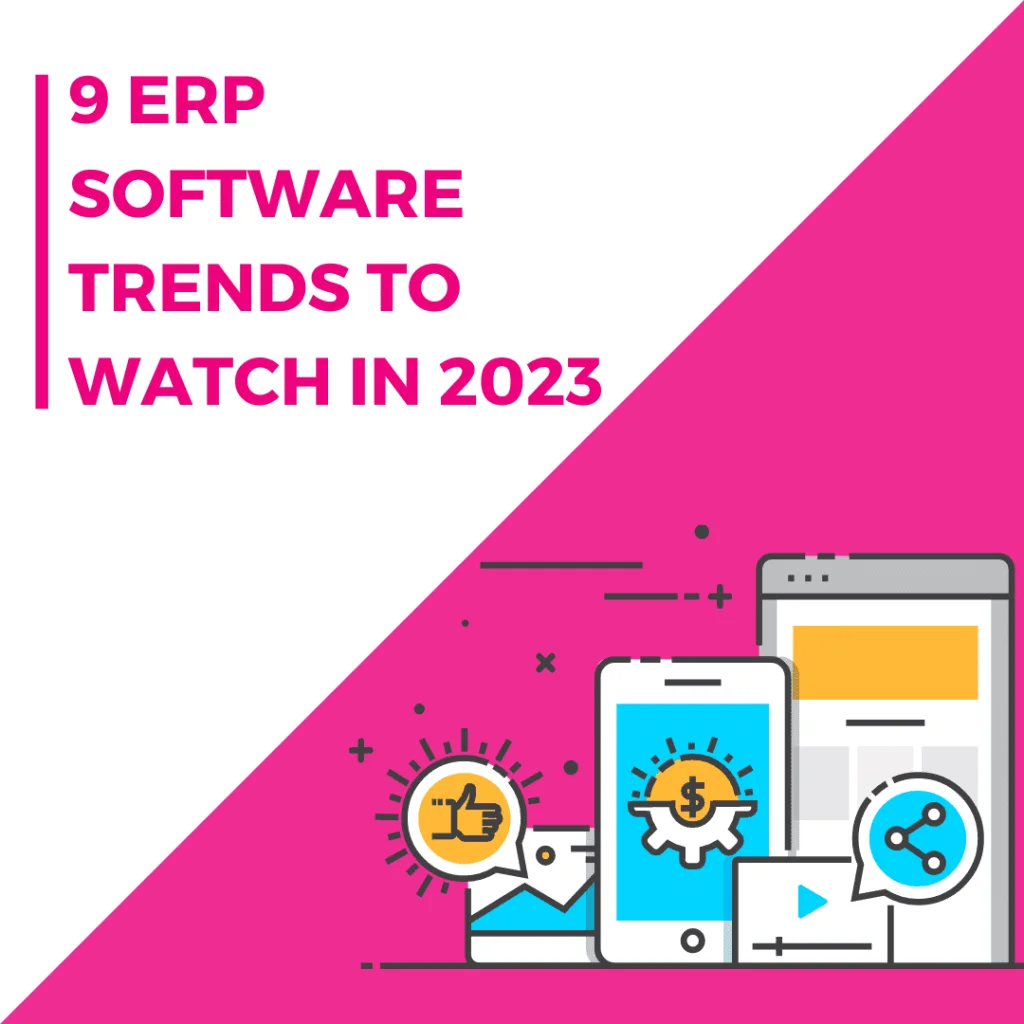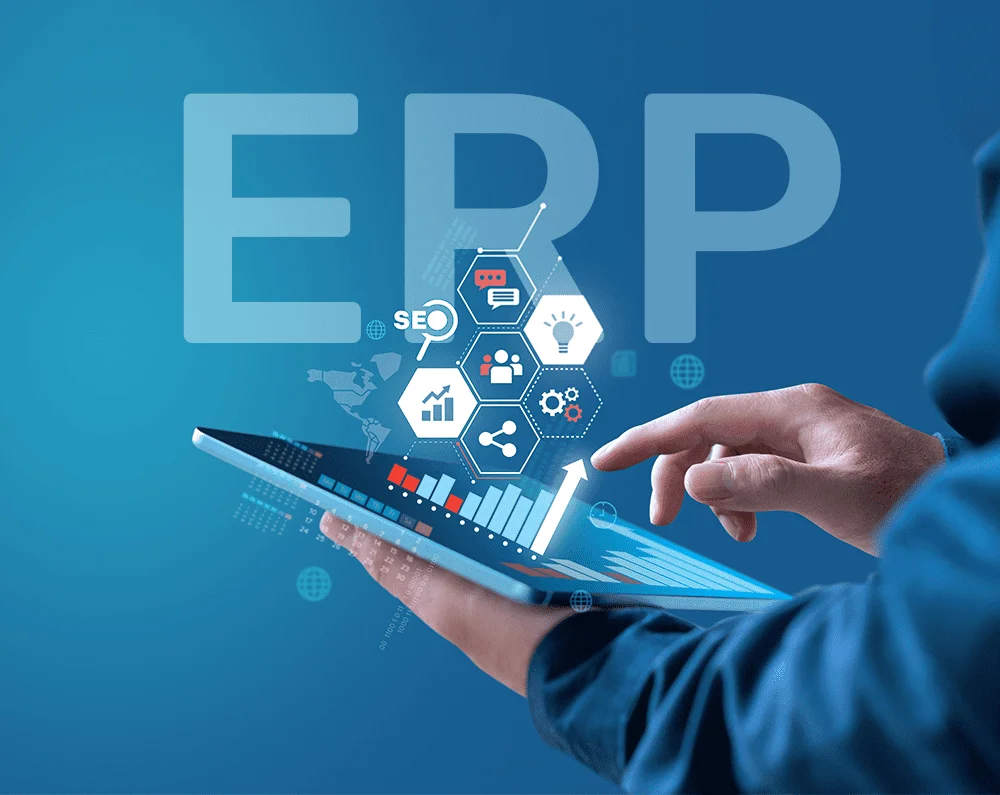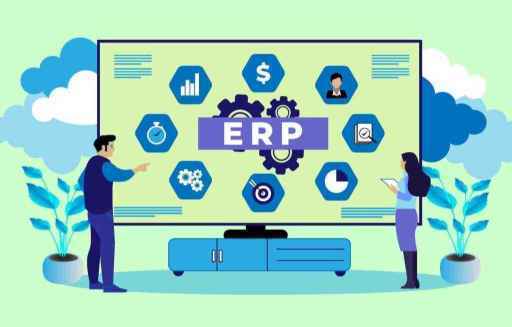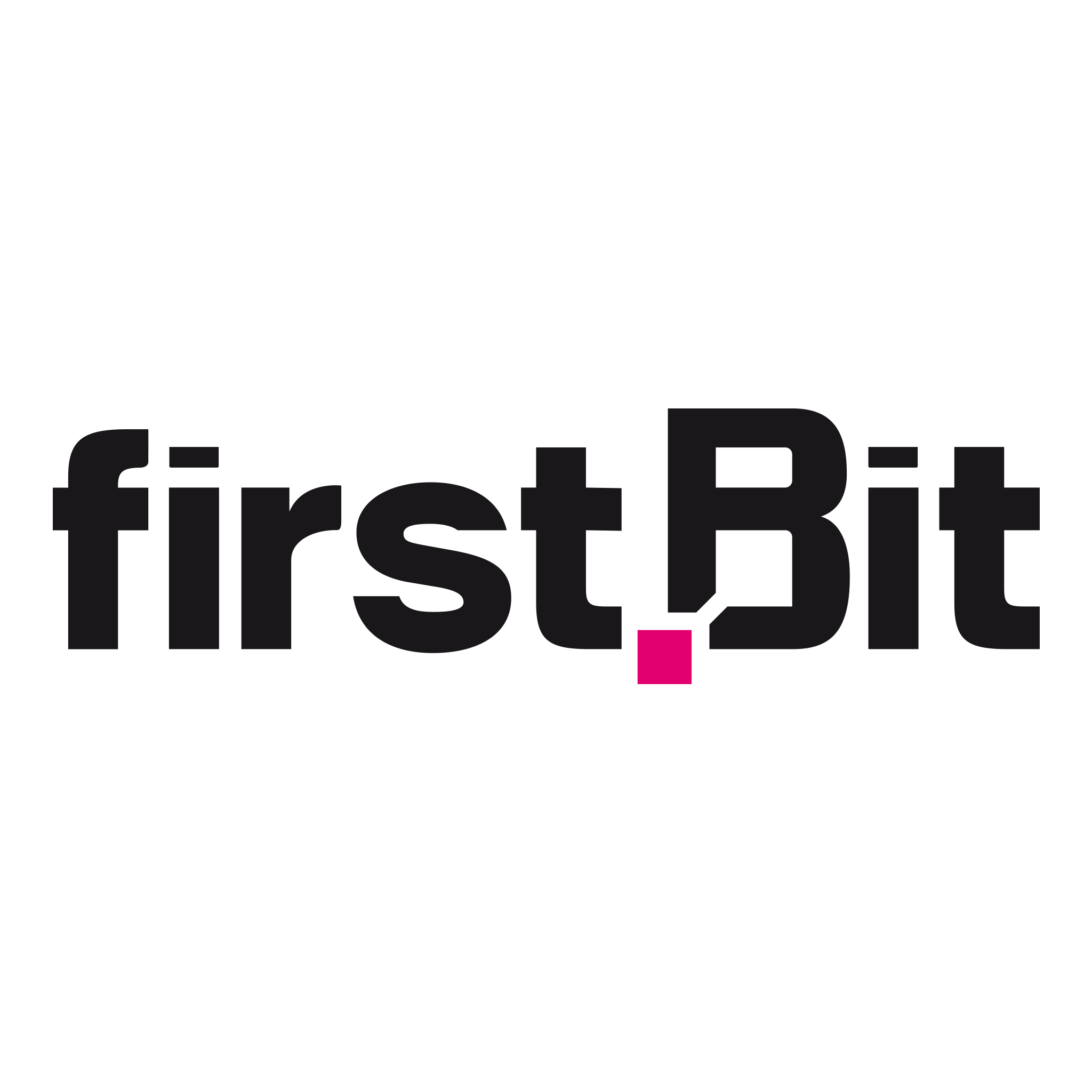
So, without further ado, let's dive into the 9 ERP trends to watch in 2023 and stay ahead!

1- Increased Focus on Financial Modules and Optimization
Financial management is critical for any business but can also be challenging. Cost overruns, project delays, and inaccurate forecasting can all impact a company's bottom line. That's where financial modules can help. It has features like general ledger, accounts payable, accounts receivable, and cash flow management.
And in 2023, the ERP trend toward an increased focus on financial modules is expected to continue. It is driven by the need for businesses to improve financial performance.
ERP innovation has led systems to provide real-time access to financial data, enabling you to make more informed decisions. Also, you can automate tedious financial processes, such as creating VAT reports, analyzing payables and receivables, and processing salaries.
Besides, ERP systems are becoming more user-friendly with intuitive and easy-to-navigate interfaces. This makes financial data more accessible to non-financial stakeholders. As a result, they can ensure all departments work towards shared financial goals.
Even leading vendors prioritize ERP innovation to ensure businesses get the most out of the financial module. Here's how.
- Investing in AI and ML to enable businesses to automate financial forecasting
- Incorporating advanced security features, such as blockchain, to protect financial data
- Providing customization options to help you tailor financial modules to your specific needs
2- Lower Spending to Combat Inflation
Inflation affects businesses of all sizes and industries, particularly their budgets and expansion plans. However, with the right ERP software, you can streamline your processes and automate tedious functions. This eliminates errors and reduces dependency on human resources, leading to cost savings. Besides, you can track expenses, optimize the supply chain, and improve inventory management.
Additionally, ERP software provides real-time visibility into business operations. As a result, you can better anticipate changes in the market. This, in turn, enables you to take proactive steps to reduce costs and maintain profitability.
Businesses also use ERP software to forecast the impact of inflation on their financials. With advanced analytics, ERP today lets you model various inflation scenarios. You can then identify potential risks and opportunities. This leads to better planning and optimizing spending to combat inflation.
Additionally, ERP helps reduce spending by allowing you to
- Identify areas where you can cut costs
- Negotiate better prices with suppliers
- Optimize resource allocation
Thus, this ERP trend will likely be a game-changer in 2023 and beyond!
3- Embrace the Benefits of Cloud ERP
Continuing from where we left off, one of the prime ERP trends is cloud-based ERP platforms that significantly reduce your ERP costs. It doesn't require building IT infrastructure or creating an IT team. The vendor takes care of hosting and maintenance for a monthly fee.
With the increasing adoption of cloud technology across various industries, more and more businesses recognize the benefits of cloud ERP systems over traditional on-premise solutions. Here are some key benefits of cloud solutions driving this ERP trend:
- Flexible and Scalable: Cloud ERP solutions offer businesses greater mobility and scalability than on-premise solutions. You can access it from anywhere with an internet connection. This enables remote work and collaboration. Moreover, you can scale cloud ERP solutions up or down based on changing business needs.
- Cost Savings: Cloud ERP solutions offer more significant cost savings than on-premise ones. The latest ERP innovation eliminates the need for expensive hardware and IT and the costs of maintaining and upgrading it.
- Improved Security: Cloud ERP vendors typically have dedicated security teams. They also use advanced security technologies, such as encryption and 2FA, to protect customer data. Cloud ERP vendors offer automatic updates and backups. This reduces the risk of data loss due to hardware failure or cyber-attacks.
- Faster Implementation: You can implement cloud solutions much faster than on-premise ones. Cloud ERP vendors typically offer pre-configured solutions that can be easily customized to meet the unique needs of a business.
These benefits make it one of the most sought-after ERP trends of the year.
4- Increase Mobile ERP for Remote Work
Remote work has been rising and shows no signs of slowing down. In fact, almost 90% of UAE employees prefer hybrid or full-time remote work going forward. This means businesses need solutions that facilitate remote work and not hinder it. Mobility is one of the raging ERP trends, and mobile ERP solutions help employees stay connected and productive irrespective of where they are.
Here are some reasons why the mobile ERP trend will be a game changer.
- Accessibility: With mobile ERP, employees can access important data and tools anywhere. This makes staying connected and productive easier even when they aren't in the office.
- Collaboration: Mobile ERP facilitates remote collaboration. Employees can share information and files instantly without back-and-forth emails.
- Real-time insights: You can get real-time insights into your operations. As a result, you can make more informed decisions quickly and efficiently from anywhere.
Besides, as this ERP trend continues to grow, businesses that embrace mobile ERP solutions will be well-positioned to thrive in this new environment. Whether it's increasing accessibility, promoting collaboration, or providing real-time insights, mobile ERP is crucial for businesses that want to stay competitive.

5- Combine Artificial Intelligence with ERP
ERP vendors like FirstBit already led the ERP innovation by integrating AI years ago. However, in 2023 and beyond, we can expect a significant rise in this ERP trend. This combination will provide businesses with advanced automation capabilities to streamline processes and increase efficiency.
Undoubtedly, artificial intelligence is leading all major ERP trends. Here are some ways in which ERP platforms can benefit from AI:
- Predictive maintenance: AI can identify patterns and predict when a machine requires maintenance. This helps prevent costly downtime and extend equipment lifetime.
- Automated financial reporting: ERP software with AI can automate financial reporting. It can analyze data and generate custom reports without human intervention. This saves a significant amount of time and resources while eliminating errors.
- Intelligent supply chain management: AI can analyze chunks of data to optimize supply chain management. This includes predicting demand and identifying potential supply chain disruptions.
- Customer service automation: ERP systems can automate customer service with artificial intelligence. It can use natural language processing to respond to customer inquiries and complaints.
- Fraud detection: AI can analyze data from ERP systems to identify patterns that may indicate fraudulent activity. This can help businesses detect and prevent fraud before it causes significant damage.
6- Customization and Industry-Specific Solutions
Every business has unique processes and requirements, and a generic ERP solution may not be able to cater to all those needs. Therefore, more and more businesses are looking for tailored solutions. This ERP trend is driven by the need to optimize workflows, automate processes, and reduce manual intervention.
By customizing the ERP, you can eliminate unnecessary features, focus on essential functionalities, and integrate specific processes. This helps ensure the solution matches your business processes and can scale easily.
Industry-specific ERP solutions are also gaining traction in 2023. These solutions cater to the unique requirements of different sectors, such as manufacturing, healthcare, and retail. Industry-specific solutions provide businesses with specific features to address their pain points. They also make complying with industry regulations and standards easier for businesses.
For example, an ERP solution designed for manufacturing can manage
- Production planning,
- Supply chain management, and
- Inventory control
On the other hand, an ERP solution designed for the healthcare industry can manage:
- Electronic medical records
- Patient billing, and
- Appointment scheduling
Besides, industry-specific solutions are ahead of the ERP innovation as they have a defined market. As a result, they can quickly change per the market requirements.
7- Integration with Microservices Architecture
Microservices are a software architecture style. It involves developing software as small, independent services that communicate with each other. Integration with a microservices architecture is an essential ERP trend for 2023. It allows businesses to break down their ERP software into small, independent modules.
These modules can be developed, deployed, and managed independently. It makes the software more agile, flexible, and scalable. As a result, businesses can easily adapt to changing market needs and requirements.
In addition, integration with microservices architecture helps create a modular ERP. It can be easily customized, upgraded, and replaced. This reduces the costs and complexity of maintaining and upgrading ERP software. This, in turn, provides better fault tolerance, reliability, and resilience.
Here are some more ways this ERP innovation can benefit you.
- Enhanced ability to integrate with other software systems
- Improved application performance and response time
- Increased security and data privacy
- Simplified development and deployment processes

8- Hybrid or “Two-Tier” ERP
One of the most popular trends in the current business arena is Hybrid ERP. Let’s gain a clear perspective on this subject.
Hybrid ERP combines two ERP systems: one for corporate headquarters and another for other business units. By adopting a hybrid or two-tier ERP system, businesses can benefit from the best of both worlds. The corporate headquarters can use a centralized ERP system that provides a holistic view of the entire business. In contrast, subsidiary business units can use a decentralized ERP system that caters to their unique requirements.
This ERP innovation allows businesses to standardize their core business processes while allowing local customization and flexibility. It also enables them to scale their ERP and keep a unified system that can grow as the business expands.
Moreover, a hybrid or two-tier ERP system can reduce the total cost of ownership of ERP software. By combining cloud-based and on-premises ERP systems, businesses can lower their IT costs while maintaining high data security and control.
- Here are some key benefits of leveraging this ERP trend for your business.
- Provides local business units with more autonomy and control over their ERP systems
- Allows for quicker implementation and adoption of new ERP technologies and features
- Enables easier integration with third-party applications and services
- Provides better support for multilingual and multi-national operations
- Offers improved data accuracy and consistency across the entire company
- Enables better management of compliance requirements for each business unit
- Enables better financial consolidation and reporting at the corporate level. At the same time, it provides granular visibility into each business unit.
9- Build Better Customer Relationships
With the economy facing inflationary pressures, it is more important than ever for businesses to retain customers and provide them with a positive experience. This is where customer relationship management (CRM) software comes into play. The latest ERP innovation makes it possible to implement CRM as a standalone system or an ERP add-on module.
Here are some ways this ERP trend will benefit your business.
- Improved customer retention: With a CRM solution, businesses can respond to customers' needs in a more personalized way. This leads to stronger relationships and loyalty.
- Enhanced customer experience: CRM software helps to provide a seamless and consistent experience across all touchpoints. From marketing and sales to service and support, you can align everything.
- Increased efficiency: Automation helps businesses free up valuable time and resources to focus on other strategic priorities.
- Align sales and marketing: You can more effectively align sales and marketing efforts by gaining insights into customer needs and preferences. Since everything is stored in one place, sales and marketing teams can use the same data to optimize their campaigns.
- Drive revenue growth: Providing a superior customer experience and building customer loyalty is essential. It helps drive revenue growth and gain a competitive edge. And a CRM allows you to do that.
However, the CRM has all the necessary features to build strong customer relationships. If not, you will end up investing in multiple systems to get desired results.
Wrapping Up
ERP innovation doesn't seem to slow down anytime soon. And businesses need to stay up-to-date with the latest technology trends to stay competitive. From an increased focus on financial modules to embracing the benefits of cloud ERP and artificial intelligence, the future looks bright for ERP software in 2023 and beyond.
Looking to future-proof your business processes with an advanced ERP system? Check out what FirstBit has to offer!
of your processes and scale your business with FirstBit ERP now!








